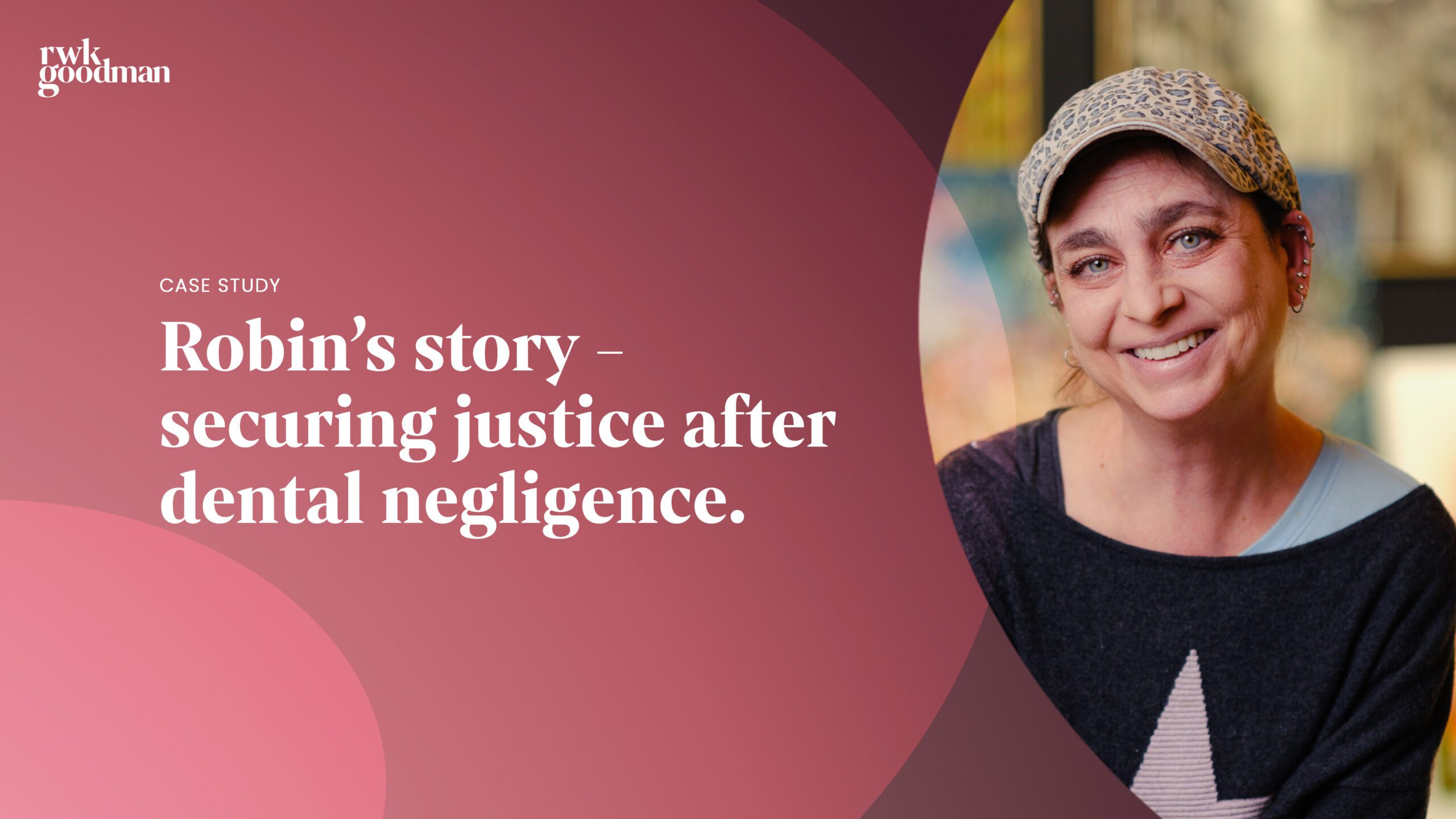Medical Negligence – Lessons learned: Hazel’s Story
Colin Griffiths died from complications of a vaccine which he should never have been given. The nurse misheard his response to a key question about his medical history and erroneously approved him receiving the vaccination which proved fatal. Through an inquest and claim the family brought about change to ensure that this would not happen to anyone else.
Colin Griffiths was a multi-skilled engineer with a conveyancing firm, and had a happy family life with his wife Hazel and three children.
In July 2014, Colin underwent a thymectomy due to the presence of thymoma – a tumour found in the thymus gland. Colin underwent the procedure and promptly made a full recovery.
In 2018 Colin was due to travel to Nigeria with his work but he required a number of vaccinations, including one for yellow fever.
To get the yellow fever vaccine, Colin attended the MASTA Travel Health Clinic in March 2018.
As a live, attenuated vaccine, yellow fever is known to be completely contraindicated in anyone who has had a thymectomy, such as Colin.
Five days following his first yellow fever vaccination, on 28 March 2018, Colin became unwell, exhibiting flu-like symptoms. Over the next few days, this developed into diarrhoea, nausea and vomiting and progressed further to the extent that he was unable to get out of bed, complaining of parasthesia – a burning or tickling sensation - in his feet. Concerned about Colin’s deterioration, Hazel called 111, who advised that he should be taken immediately to A&E at Frimley Park Hospital in Surrey.
At the time of his admission to Accident & Emergency, Colin was conscious but his condition was rapidly deteriorating. He was admitted to the Intensive Care Unit where he required cardiovascular support to maintain his blood pressure. After being made aware of the positive result for yellow fever that night, the medical staff discussed Colin’s case with another hospital’s Infectious Diseases Team.
Colin developed multi-organ failure, with liver failure being the prominent feature. Requiring more specialist care, Colin was then transferred to the Intensive Care Unit at the Royal Free Hospital in London.
On arrival at the Royal Free Hospital a diagnosis was promptly made of vaccine-induced yellow fever. Unfortunately, Colin’s condition continued to deteriorate to the extent he required ventilation by the morning of 1 April 2018. Throughout this period of time he was fully conscious and aware that there was no curative treatment.
On 2 April, Colin was commenced on a new antiviral therapy. Despite this he required increasing multiple organ support and developed signs of heart failure.
Sadly Colin continued to deteriorate and on 8 April life support was withdrawn.
Colin’s family lost a son, husband and father. The youngest child was 19 years old at the time of her father’s death.
Seeking an inquest
As a result of the circumstances surrounding Colin’s death, Hazel and her family approached us in order to seek answers through an inquest process.
The inquest uncovered exactly how the fatal error had occurred. The nurse advising Colin, and administering the vaccinations, was very well qualified. She had a good understanding of the contraindications and knew that the live attenuated yellow fever vaccine should never be given to someone with Colin’s history. However, when asking about his medical history the information was taken verbally. Colin volunteered that he’d previously suffered a benign thymoma, but the nurse misheard (in part due to Colin’s accent) and thought he said that he’d had a benign spinal tumour. The first meant that a yellow fever vaccination was contraindicated, the second did not.
Coroner’s action to prevent future deaths
Senior Coroner Mary Hassell, who heard the inquest was concerned about how this fatal mistake had arisen and questioned why better safeguards weren’t in place. She felt there was a risk that future deaths would occur unless action was taken and, accordingly, she prepared a Prevention of Future Deaths Report.
The Coroner’s concerns were two-fold:
- “The recording of medical conditions was entirely dependent on the verbal communication, which in this instance was sub optimal…There seems to be a need for an added layer of security, rather than just relying on patients listening to a long list of conditions being read out.
- MASTA currently has no way of auditing whether the record a nurse makes is accurate.”
As a result of the inquest and claim processes, MASTA, the clinic responsible for providing the vaccination to Colin, made a number of improvements. These not only address the specific concerns of the Coroner but went even wider:
- They changed the prompts the nurses used to clarify the language used, and to include reference to ‘thymus gland’ and to ‘thymectomy’. The prompts are separated out into two parts to mitigate the risk of this key medical history being missed or answered mistakenly.
- Improved links were made on the MASTA system to alert staff to the risks of yellow fever vaccines for some patients
- The traveller’s vaccination booklet was expanded to include more detail about yellow fever side effects
- A mandatory training module specifically focusing on the thymus gland and the effects of its removal was developed and completed by all MASTA nurses involved in advising and administering vaccinations
- The contraindications for the vaccination were highlighted and moved to the top of the Patient Group Directive for the product and reissued to all MASTA nurses.
- Digital pads were trialled so confirmatory signatures could be obtained by travellers to approve the history taken.
As a result of active participation in the inquest the family were able to secure changes to MASTA’s systems which should ensure this doesn’t happen to anyone else.
Claim for damages
After representing the family in the inquest process, in August 2018 Hazel sought compensation through a fatal claim. We obtained expert evidence and issued court proceedings on behalf of the family. Ultimately, we secured a settlement of £380,000. A significant proportion of this was to compensate the family for the loss of income they suffered as a result of Colin’s death.
The settlement not only provided the family with financial security for the future, but also helped them to achieve a sense of closure about what happened. Through having specialist representation in the inquest and the subsequent claim the family were able to answer the questions they had about how Colin’s death came about. This included obtaining evidence from medical experts who undertook in-depth analysis about Colin’s death and what went wrong, and hearing first hand evidence from key witnesses involved in Colin’s case. Crucially, the family have achieved something positive as part of Colin’s legacy: the lessons learned through the process have led to key safety improvements being made at MASTA which mean nobody else should go through what they did.

Prevention of Future Deaths (PFD) Reports – what you need to know
Here we explain what you need to know about PFD reports, including what they are, how they are brought about, and what happens when they are produced.
- What is a Prevention of Future Deaths (PFD) report?
- How do I ensure a PFD report is written?
- What type of concerns are raised in a PFD report?
- What happens when a PFD report is made?
- Can a PFD report lead to a successful clinical negligence claim?
Call us now or use the form here to contact us and find out how we might be able to help you.
Call now

Here to ensure that lessons are learned
When harm is caused, either to yourself or a loved one, you want to know how it happened and to ensure it doesn’t happen to others.
Whether you’ve sustained an injury as a result of medical negligence, been involved in a life changing accident, or suffered the death of someone close to you, our legal experts understand how important it is to seek answers about what happened.
These stories show how our team seeks to identify issues in care and safety, and to ensure lessons are learned when things go wrong.
Related articles
From acquired brain injuries and dental negligence, to birth injuries and spinal injuries, our team of expert medical negligence solicitors have an exhaustive experience of medical negligence claims and compensation. Whatever you need to claim for, we know how best to go about it.
View more articles related to Medical negligence

